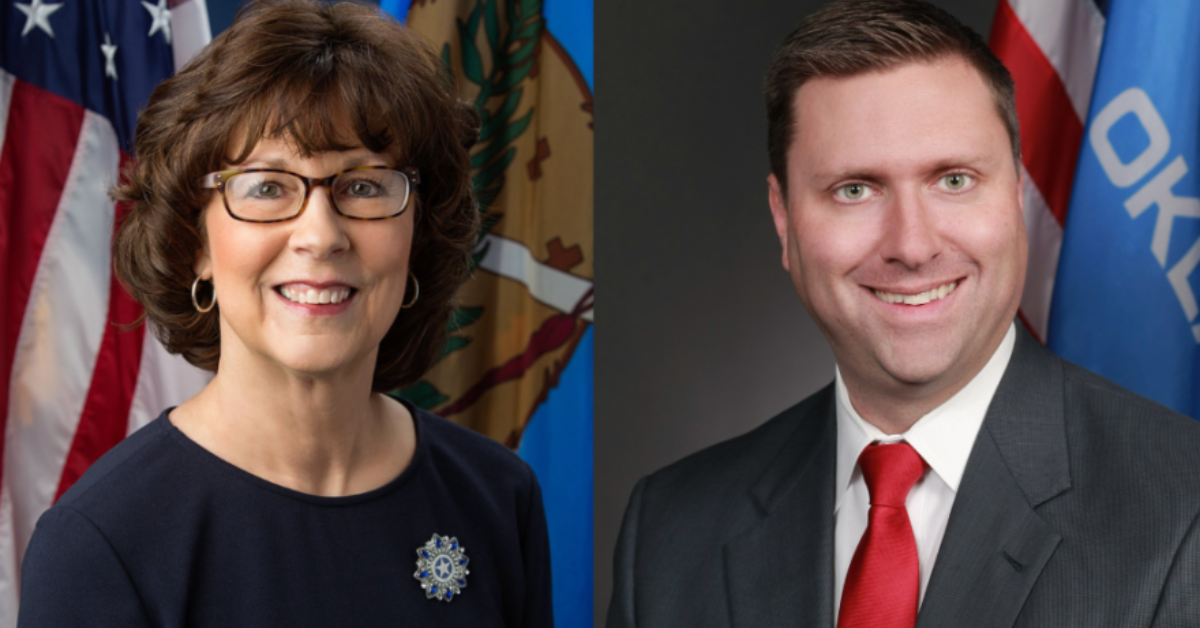Oklahoma’s tribal nations are taking a strong stand in a legal battle involving the U.S. Department of Justice (DOJ) and two district attorneys from the state. The case centers on allegations that the prosecutors, Matthew Ballard and Carol Iski, violated federal jurisdiction laws by improperly filing cases involving Native Americans.
The DOJ lawsuit accuses the two district attorneys of mishandling seven cases that should have been under the jurisdiction of tribal courts, not the state’s legal system, as outlined by the McGirt v. Oklahoma ruling.
Ballard serves as the district attorney for Craig, Mayes, and Rogers Counties, while Iski is the district attorney for McIntosh and Okmulgee Counties. The McGirt decision in 2020 was a landmark case that ruled much of eastern Oklahoma remains within the jurisdiction of Native American tribes.
This ruling significantly impacts the way criminal cases involving Native Americans are handled, as they should now fall under tribal jurisdiction rather than the state’s court system. This shift in jurisdiction has led to confusion and legal battles, as state prosecutors, like Ballard and Iski, continue to file cases involving tribal members, despite the Supreme Court’s ruling.
To help clarify the matter, three of Oklahoma’s largest tribes—the Chickasaw Nation, Cherokee Nation, and Choctaw Nation—have stepped in to support the DOJ’s lawsuit. They have filed motions that urge the court to stop Ballard and Iski from prosecuting cases involving tribal defendants. These tribal leaders argue that the actions of the prosecutors are not only unlawful but are also damaging to the rule of law and public safety.
Bill Anoatubby, the Governor of the Chickasaw Nation, expressed the tribe’s stance in a joint press release, emphasizing the importance of respecting federal jurisdiction laws. He stated, “Our action today is in support of the rule of law.
We work with our law enforcement partners across jurisdictional lines every day to ensure Oklahomans are kept safe, and we will continue to do so.” The Chickasaw Nation has been a strong advocate for collaboration between tribal governments and state authorities, and Governor Anoatubby highlighted that this cooperation is vital for maintaining public safety.
However, he also stressed that ignoring the established rules governing jurisdiction would put everyone at risk. “In the meantime, we will also act to support the rules that govern our law enforcement systems, as not doing so risks the public’s safety,” he added.
The Cherokee Nation also expressed concern over the actions of the state prosecutors. Principal Chief Chuck Hoskin Jr. condemned the district attorneys’ actions, calling them a threat to tribal sovereignty and public safety in Oklahoma. “This is not only an attack on tribal sovereignty, but a threat to the public safety of all Oklahomans,” Hoskin said.
The Cherokee Nation believes that the actions of the district attorneys are undermining the integrity of the legal process, potentially causing confusion for law enforcement and risking the dismissal of critical cases. Hoskin pointed out that when cases are mishandled or improperly filed, it can lead to situations where victims and their families are caught in confusing and convoluted legal battles, which only compounds the harm done to them.

In addition to the Chickasaw and Cherokee Nations, the Choctaw Nation has also come forward in support of the DOJ’s lawsuit. Chief Gary Batton of the Choctaw Nation praised the DOJ for its defense of tribal sovereignty and the U.S. Constitution. “The Department of Justice is doing the right thing by defending the U.S. Constitution and the principle of tribal sovereignty,” Batton said. He stressed that the Choctaw Nation stands against any efforts to weaken tribal sovereignty or the protections guaranteed by the U.S. Constitution.
The actions taken by Ballard and Iski are an attempt to weaken the tribes’ rights and the partnerships that have been established between tribal governments and law enforcement agencies. The Choctaw Nation, along with the other tribes, believes that the legal clarity provided by the McGirt ruling must be respected to preserve the legal rights of Native American citizens.
Since the McGirt v. Oklahoma decision, legal confusion surrounding jurisdiction has been a significant issue in the state. The ruling found that much of eastern Oklahoma remains tribal land, and as such, cases involving Native Americans must be tried in tribal courts.
This shift has led to an increased number of lawsuits and legal challenges, as state authorities and local prosecutors adjust to the new legal landscape. The DOJ lawsuit against Ballard and Iski is just one of many cases where legal clarity is being sought, as the tribes and state continue to navigate the complexities of federal and state jurisdiction.
The intervention of the three Oklahoma tribes in this case is significant, as it highlights the ongoing tensions between tribal sovereignty and state authority. The tribes argue that it is essential to protect the integrity of their legal systems and uphold the rights of their citizens.
If the district attorneys are allowed to continue prosecuting cases involving Native Americans, it could create a dangerous precedent and lead to more legal confusion in the future. The tribes are calling for the court to act swiftly to ensure that justice is served and that the jurisdictional rights established by the McGirt ruling are respected.
The tribes’ support for the DOJ’s lawsuit underscores the importance of protecting tribal sovereignty and maintaining the rule of law in Oklahoma. The tribes are committed to working with state and federal authorities to ensure public safety, but they also believe that the jurisdictional boundaries set by the McGirt decision must be honored to avoid further legal complications. The outcome of this case will likely have far-reaching implications for how Native American cases are handled in Oklahoma and could set important legal precedents for the future.
Disclaimer: This article has been meticulously fact-checked by our team to ensure accuracy and uphold transparency. We strive to deliver trustworthy and dependable content to our readers.

